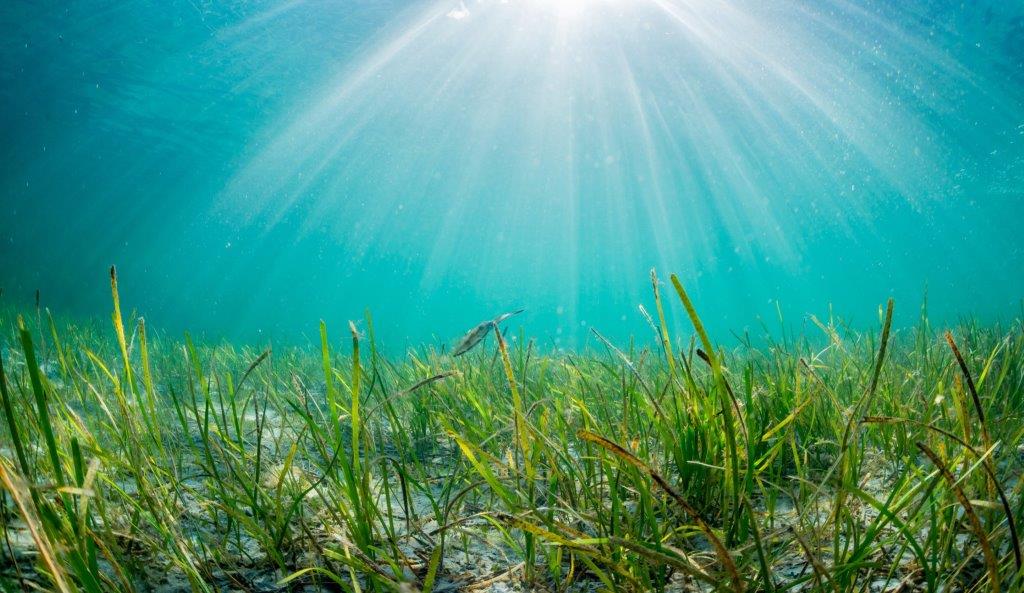

Shipping is one of the biggest logistical industries in global trade. Almost all the thousands of container ships and other boats that sail the world ocean daily are coated with antifouling paint, which prevents invasive species from attacking the ships’ hull, thereby increasing the ships’ water resistance.
Unfortunately, there are many harmful chemicals in the paints available today, such as copper. The Danish company Cysbio has found the solution. They have developed and patented a fermentation technology to produce chemicals that are difficult to manufacture such as eelgrass acid. It’s a quantum leap in research, as eelgrass acid can be used to prevent all kinds of microbes and even larger organisms from attaching to surfaces. It can therefore be used in antifouling paint for ships, thereby avoiding the use of environmentally harmful materials.
– Current antifouling paint is primarily based on older technology in the form of traditional heavy metal containing biocides, primarily copper, and it’s proven difficult to produce a more sustainable substitute. In nature, there’s a plant that holds the solution to the problem, namely eelgrass, which has its own antifouling mechanism to eliminate unwanted microorganisms by producing eelgrass acid, says Henrik Meyer, CEO of Cysbio. He adds:
– Eelgrass only produces a tiny amount of eelgrass acid, so extraction directly from the eelgrass plant material is not affordable and production by chemical synthesis is also too expensive to allow commercial use. However, by brewing the acid, much like brewing beer, using our genetically engineered microorganisms to make eelgrass acid, we can make production much cheaper and based on renewable carbon sources, thereby making the whole process and the antifouling products fully sustainable.
No alternatives until now
Without antifoulants in the paint, invasive organisms attack the ship’s hull, which increases the ship’s frictional resistance, decreases speed, while fuel usage and shipping costs skyrocket. The ship also emits more CO2 and risks spreading invasive microorganisms from one ecosystem to another. For these reasons, there haven’t been any financial or environmental advantage in eliminating biocides in antifouling paints.
– The problem is that the harmful effects of not using antifouling agents have been so great that we have chosen to live with copper accumulation. But now, as we can produce eelgrass acid, we can use more environmentally friendly chemistry and thereby avoid copper and other harmful components in our seawater, says Henrik Meyer.
Jens Tørslev from the independent research organization, DHI Water Environment Health, which specializes in aquaculture, agrees that the pros and cons of antifouling ship’s paint make for a hard balance. He notes that developments in antifouling will help the shipping industry and, in the long run, the environment.
– The industry is aware of the paint’s unwanted effects, and earlier, there have been attempts to tighten the regulation for the use of chemical substances in ship’s paint. But the paint still contains some copper, and too much copper in the water can show their effects on the ecosystem. Now, there are alternatives for the industry, and that’s positive, Jens Tørsløv explains.
Prohibition is gaining ground
Due to the lack of alternatives, antifouling paints containing copper are still permitted, but environmental authorities the world over have started to counteract. Sweden has fully banned ships with copper paint in the Bay of Bothnia and freshwater lakes, while the Netherlands and California has introduced restrictions that prohibit the sale of ship paint with high concentrations of copper for yachts and recreational vessels.
– It’s crucial that corporations and politicians drive this development. Companies that produce ship’s paint must take part in product development, as they will actively be using these new chemicals in the future. It will take some development work, but it will create great market value for the first companies who enter the market with these new products, and we are prepared to help and cooperate with them, says Henrik Meyer. He adds:
– The current method with chemical and copper-containing paint is expensive and unsustainable, so it makes both economic and environmental sense to replace these less wanted components with more environmentally friendly solutions.
Cysbio uses advanced technology to produce cheap and sustainable biochemicals by modifying microorganisms with the ability to convert simple sugars to biochemical products. Cysbio is a spin.out of Novo Nordisk Foundation Center for Biosustainability at DTU (Technological University of Denmark).
Read more at www.cysbio.com
